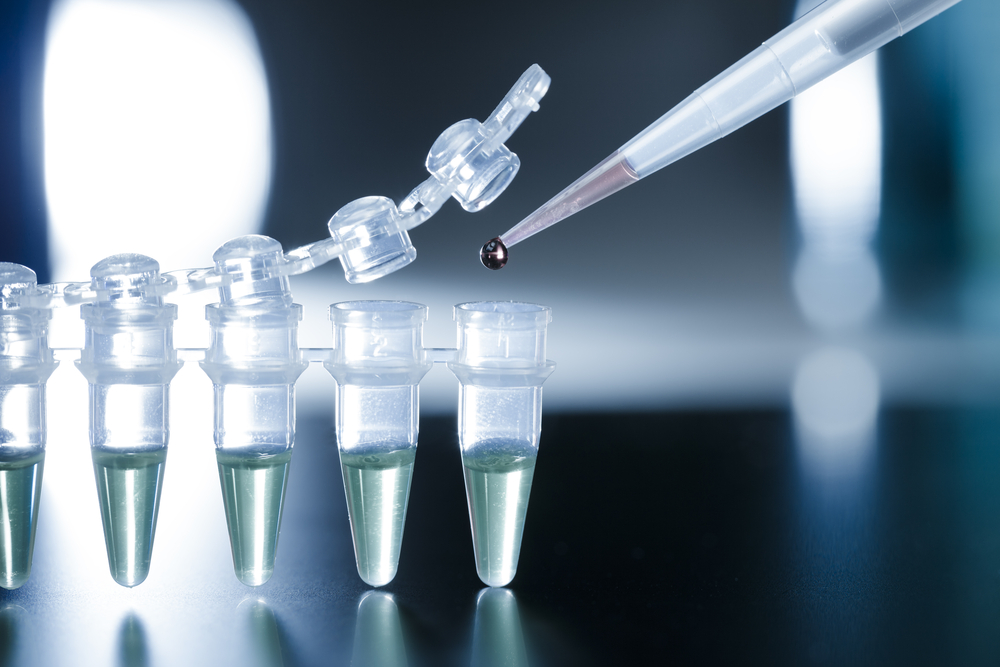Top Stories

Stem Cells Might Provide Breakthrough In Treating Severe Blistering Disease, RDEB
Scientists might be close to a breakthrough in finding a treatment for a severe and devastating skin blistering disease. In a study recently published in STEM CELLS Translational Medicine (SCTM), the team details how they used a certain type of stem cells to significantly relieve the symptoms of recessive dystrophic epidermolysis bullosa (RDEB) in mice.
RDEB is an inherited disease caused by mutations in the COL7A1 gene, essential to producing type VII collagen. Signs and symptoms vary widely, according to the National Institutes of Health. In mild cases, blistering may primarily affect the hands, feet, knees and elbows. Severe cases, though, often involve widespread external and internal blistering, which can result in vision loss, scarring, disfigurement and, often, squamous cell carcinoma and death during the patient’s third or fourth decade of life.
There is no cure and treatment is limited to preventing blisters from forming and to managing symptoms. A therapy that is safe for patients and alleviates both the outside and inside manifestations of the disease is in great demand.
In the study published in SCTM, a multi-institutional team demonstrated significant therapeutic benefits of human placental derived stem cells in a mouse model with RDEB. The investigation was led by Mitchell Cairo, M.D., chief of Pediatric Hematology, Oncology and Stem Cell Transplantation and professor of Pediatrics, Medicine, Pathology, Microbiology & Immunology and Cell Biology & Anatomy, at New York Medical College, Valhalla, N.Y.
“We had recently shown how human cord blood-derived stem cells promote wound healing and ameliorate the blistering in a RDEB mouse model,” Dr. Cairo said. “In this latest study, we found that the therapeutic effects of a different type of stem cell — human placental derived stem cells (HPDSCs) — were even more remarkable. HPDSCs contain a much higher level of both hematopoietic and non-hematopoietic stem and progenitor cells than cord blood and are low in T cell content. HPDSCs are currently being used to safely treat humans with malignant and non-malignant diseases [NCT 01586455].”
A single dose of these HPDSCs investigated in combination with unrelated cord blood given to one group of mice extended their median life from two to seven days; an additional administration given to a second group significantly extended the median life span to 18 days.
"We further demonstrated that the HPDSCs effectively migrated to the organs affected by RDEB (i.e., skin and GI tract), deposited the missing protein (C7) and significantly improved the adherence of epidermis to the dermis of the skin without inducing anti-C7 antibodies,” Dr. Cairo added. "Based on these results, we believe this study warrants future clinical investigation to determine the safety and efficacy of HPDSCs in patients with severe RDEB.”
“This research into using human placental derived stem cells as HLA-independent donor cells in patients with RDEB suggests potential for a much-needed therapy,” said Anthony Atala, M.D., Editor-in-Chief of STEM CELLS Translational Medicine and director of the Wake Forest Institute for Regenerative Medicine. “We look forward to seeing the progression of this work toward clinical trials.”
The full article, “Efficacy of Human Placental Derived Stem Cells in Collagen VII Knockout (Recessive Dystrophic Epidermolysis Bullosa) Animal Model,” can be accessed at http://www.stemcellstm.com.
About STEM CELLS Translational Medicine: STEM CELLS Translational Medicine (SCTM), published by AlphaMed Press, is a monthly peer-reviewed publication dedicated to significantly advancing the clinical utilization of stem cell molecular and cellular biology. By bridging stem cell research and clinical trials, SCTM will help move applications of these critical investigations closer to accepted best practices. SCTM is the the official journal partner of Regenerative Medicine Foundation.
About AlphaMed Press: Established in 1983, AlphaMed Press with offices in Durham, NC, San Francisco, CA, and Belfast, Northern Ireland, publishes two other internationally renowned peer-reviewed journals: STEM CELLS® (http://www.StemCells.com), celebrating its 36th year, is the world's first journal devoted to this fast paced field of research. The Oncologist® (http://www.TheOncologist.com), also a monthly peer-reviewed publication, entering its 23rd year, is devoted to community and hospital-based oncologists and physicians entrusted with cancer patient care. All three journals are premier periodicals with globally recognized editorial boards dedicated to advancing knowledge and education in their focused disciplines.
About Wiley: Wiley, a global company, helps people and organizations develop the skills and knowledge they need to succeed. Our online scientific, technical, medical and scholarly journals, combined with our digital learning, assessment and certification solutions, help universities, learned societies, businesses, governments and individuals increase the academic and professional impact of their work. For more than 200 years, we have delivered consistent performance to our stakeholders. The company's website can be accessed at http://www.wiley.com.



Comments